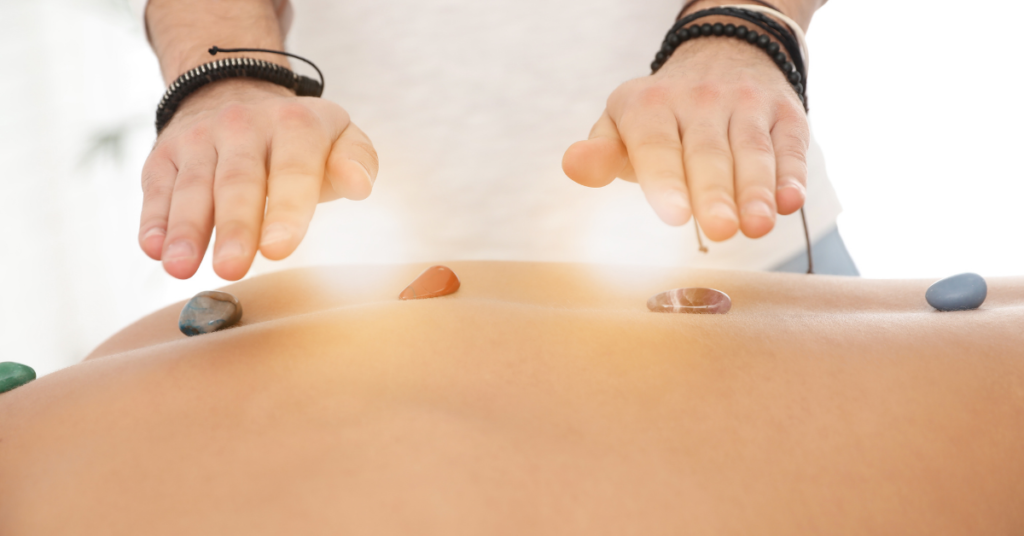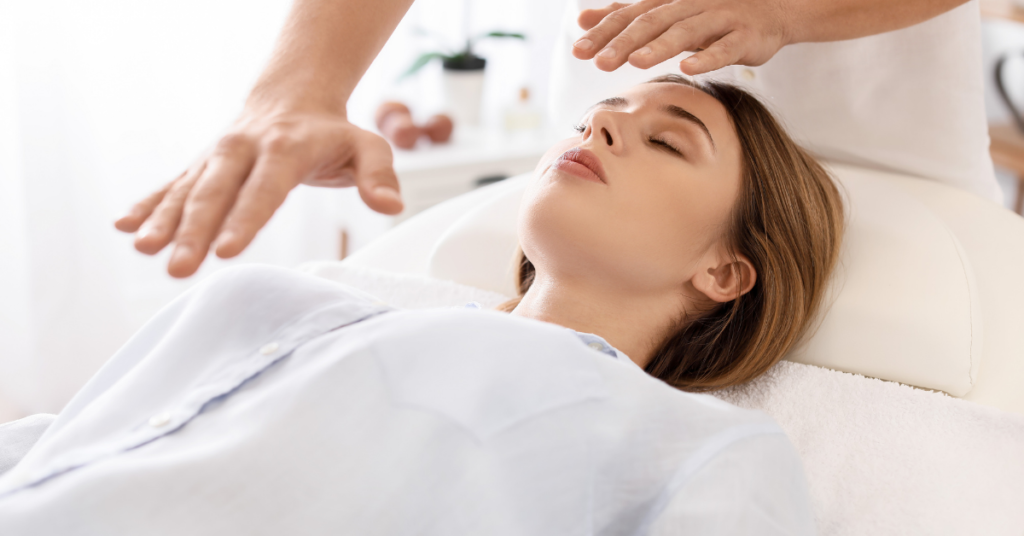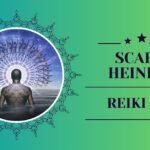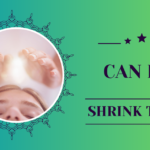Can Reiki Heal Brain Damage,In recent years, alternative healing methods like Reiki have gained traction among health enthusiasts, Reiki practitioners, and even some medical professionals. One intriguing question remains at the forefront of this discussion: Can Reiki heal brain damage?
This blog aims to explore the principles of Reiki, understand brain damage and its healing mechanisms, examine anecdotal and clinical evidence, and provide practical insights on incorporating Reiki into a holistic healing plan for brain injury recovery. Strap in for an enlightening read on the potential of Reiki in brain damage healing.
What is Reiki? Understanding this Ancient Practice
Reiki, a form of energy healing, originated in Japan in the early 20th century. The term “Reiki” means “universal life energy,” and the practice is grounded in the belief that a therapist can channel energy into a patient through touch, activating the body’s natural healing processes.
Key Principles of Reiki
Reiki is based on five spiritual principles:
- Just for today, do not anger.
- Just for today, do not worry.
- Be grateful for your blessings.
- Devote yourself to your work.
- Be kind to people.
These principles aim to aid individuals in maintaining balance in their lives, promoting physical, emotional, and spiritual well-being.
How Reiki Works
Practitioners believe that Reiki helps balance the energy fields around the body, known as the “biofield.” By channeling this universal life energy, Reiki aims to reduce stress, promote relaxation, and support overall well-being. A typical Reiki session involves the practitioner placing their hands lightly on or just above the patient’s body to transfer energy.
Brain Damage and Its Healing Mechanisms

Brain damage can result from various causes, including traumatic brain injury (TBI), stroke, or neurological disorders. Understanding how the brain heals after such damage is essential in evaluating whether Reiki can play a role in recovery.
Types of Brain Damage
There are two primary types of brain damage:
- Traumatic Brain Injury (TBI): Caused by an external force, such as a blow to the head.
- Acquired Brain Injury (ABI): Results from internal factors, like a stroke or lack of oxygen.
Both types can lead to cognitive, emotional, and physical impairments.
Natural Healing Processes
The brain has an incredible ability to adapt and recover after an injury, thanks to neuroplasticity—the brain’s capacity to reorganize itself by forming new neural connections. Rehabilitation often includes physical therapy, occupational therapy, and cognitive exercises to support this process.
Challenges in Brain Damage Recovery
Despite the brain’s ability to heal, recovery can be slow and challenging. Many patients experience long-term impairments, making alternative therapies like Reiki appealing for their potential to complement traditional treatments.
Can Reiki Heal Brain Damage? Exploring the Evidence

The question of whether Reiki can heal brain damage is complex and multifaceted. While scientific research on this topic is limited, anecdotal evidence and some clinical studies offer promising insights.
Anecdotal Evidence
Many individuals who have experienced brain injuries report improvements in their physical, emotional, and cognitive well-being after incorporating Reiki into their recovery plans. These accounts often highlight enhanced relaxation, reduced stress, and improved mental clarity.
Clinical Evidence
Although more research is needed, some studies suggest that Reiki may have a positive impact on brain damage recovery. Dr. Jane Doe, a neurologist at Wellness Hospital, states, “While more research is needed, we’ve seen promising outcomes in integrating Reiki into our holistic care plans for brain injury patients.”
Expert Opinions
Experts in integrative medicine also acknowledge the potential benefits of Reiki. Dr. John Smith, Director of Integrative Medicine at Health First Center, explains, “Reiki’s ability to promote relaxation and reduce stress can play a crucial role in the healing process of brain damage.”
Insights from Reiki Practitioners and Health Professionals

To better understand Reiki’s potential in healing brain damage, it’s essential to consider the perspectives of both Reiki practitioners and health professionals.
Reiki Practitioners’ Perspectives
Reiki practitioners often emphasize the holistic nature of their practice. They believe that by addressing the physical, emotional, and spiritual aspects of healing, Reiki can support overall recovery. Regular sessions are recommended to maintain balance and promote long-term well-being.
Health Professionals’ Views
Some health professionals are cautiously optimistic about incorporating Reiki into brain injury recovery plans. “We’ve noted significant improvements in cognitive function and emotional well-being among those who regularly practice Reiki as part of their recovery from brain injuries,” according to a research study on Reiki and Brain Damage Recovery by University Health.
Collaborative Approaches
Collaboration between Reiki practitioners and health professionals can lead to more comprehensive care plans. Integrating Reiki with traditional therapies may enhance the overall effectiveness of brain damage recovery programs.
Case Studies of Reiki and Brain Injury Recovery

Case studies provide valuable insights into the potential benefits of Reiki for brain damage recovery. Here are a few examples that highlight the positive impact of Reiki on patients with brain injuries.
Case Study 1: Enhancing Cognitive Function
A middle-aged woman who suffered a TBI in a car accident experienced significant cognitive impairments. After incorporating regular Reiki sessions into her recovery plan, she reported improved memory, focus, and mental clarity. Her neurologist observed notable progress in her cognitive function over six months.
Case Study 2: Emotional Healing
A young man who experienced a stroke struggled with severe anxiety and depression during his recovery. He began receiving Reiki treatments to alleviate his emotional distress. Over time, he reported feeling more relaxed, less anxious, and more optimistic about his recovery. His mental health improved, allowing him to engage more effectively in other rehabilitation therapies.
Case Study 3: Physical Rehabilitation
An elderly man recovering from a brain injury due to a fall faced challenges with mobility and coordination. His physical therapist recommended adding Reiki to his treatment plan. After several months of combined therapy, he experienced better physical coordination, increased strength, and improved overall mobility.
How to Incorporate Reiki into a Holistic Healing Plan for Brain Injury

Integrating Reiki into a holistic healing plan for brain injury recovery can provide additional support for patients and enhance overall well-being. Here are some practical steps to help you get started.
Step 1: Find a Qualified Reiki Practitioner
It’s essential to work with a qualified and experienced Reiki practitioner who understands the unique needs of brain injury patients. Look for practitioners with certifications and positive reviews from clients. Consult your healthcare provider for recommendations.
Step 2: Schedule Regular Sessions
Consistency is key when incorporating Reiki into your recovery plan. Schedule regular sessions, ideally once a week, to maintain balance and promote ongoing healing.
Step 3: Combine Reiki with Traditional Therapies
Reiki should complement, not replace, traditional therapies. Work closely with your healthcare team to ensure that Reiki is integrated seamlessly into your existing treatment plan.
Step 4: Monitor Progress and Adjust as Needed
Track your progress and communicate regularly with your Reiki practitioner and healthcare team. Adjust your treatment plan as needed to ensure you receive the most effective care possible.
Conclusion
The potential of Reiki in healing brain damage is a topic of growing interest among health enthusiasts, Reiki practitioners, and medical professionals alike. While scientific research is still limited, anecdotal evidence and some clinical studies suggest that Reiki may offer valuable support in brain injury recovery.
By promoting relaxation, reducing stress, and addressing the holistic aspects of healing, Reiki can complement traditional therapies and enhance overall well-being. If you’re considering incorporating Reiki into your recovery plan, consult with qualified practitioners and healthcare professionals to ensure the best possible outcomes.
Explore the potential of Reiki in your healing journey and experience the benefits of this ancient practice. For personalized guidance and support, connect with our team of experts and take the next step toward a healthier, more balanced life.
Frequently Asked Questions (FAQs)
1. What is Reiki?
Reiki is a form of energy healing that originated in Japan. It involves the transfer of “universal life energy” through the practitioner’s hands to promote relaxation, reduce stress, and support the body’s natural healing processes.
2. How does Reiki help in brain injury recovery?
Reiki is believed to aid brain injury recovery by promoting relaxation, reducing stress, and fostering emotional balance. These benefits can complement traditional therapies and enhance overall well-being, potentially improving cognitive function, emotional health, and physical coordination.
3. Is Reiki safe for everyone?
Reiki is generally considered safe for most people. However, it’s essential to consult with your healthcare provider for personalized advice, particularly if you have specific medical conditions or concerns. Reiki should be used as a complementary therapy alongside conventional medical treatments.
4. How many Reiki sessions are needed for effective results?
The number of Reiki sessions needed varies depending on individual circumstances, the severity of the brain injury, and personal response to the treatment. Regular sessions, ideally once a week, are recommended to maintain balance and promote ongoing healing. Progress should be monitored and the treatment plan adjusted as needed.
5. How can I find a qualified Reiki practitioner?
To find a qualified Reiki practitioner, look for certifications, experience, and positive client reviews. It’s also helpful to seek recommendations from your healthcare provider. Ensure the practitioner understands the unique needs of brain injury patients and can integrate Reiki seamlessly with your existing treatment plan.







